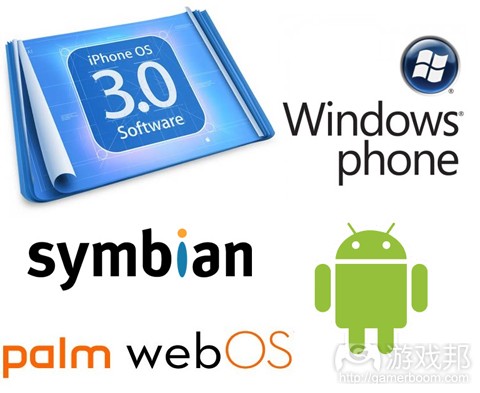移动平台分裂性所带来的游戏开发挑战
游戏邦注:本文作者是MoMinis的Anat Resnick。
如今的移动市场不乏分裂性相关话题。
在谷歌输入关键字,你会发现许多有关此问题当前和未来影响的建议、讨论、博客帖子和分析报告(游戏邦注:主要是移动开发商、制造商和终端用户角度)。
从历史角度看,平台分裂性主要涉及设备和操作系统的技术复杂性和差异性。
但如今此问题开始渗透至推广领域,开发商的选择性更广泛。
以下是平台分裂性带来的主要开发挑战:
平台选择
移动游戏开发商所要做的首个选择就是游戏要瞄准哪个移动平台和OS系统(如Symbian、黑莓、iPhone、J2ME、Android和Windows Mobile)。他们是要专攻某OS,还是覆盖所有操作系统,包括其子变体?
设备硬件决策
即便已选择某平台,开发商还需制作各种游戏版本,支持每个手机的硬件规格。他们需在多点触控、单点触控键盘、定点设备、跟踪球、标准键盘、多元键盘以及甚至是操纵杆控制器中做出选择。
他们有时甚至需要制作不同游戏版本,同时适应高端设备的高屏幕分辨率(480×800像数),和低端设备的低屏幕分辨率(128×128像数)。还需考虑的其他参数包括处理能力、硬盘空间及手机存储容量。
学习曲线和时间限制
熟练把握单个平台的编程语言通常要耗费几个月到几年时间。研究表明,学会全球设备市场份额最大的Symbian系统需15个月以上时间,而Android(游戏邦注:其市场份额有望超越Symbian)也需要5个月以上时间才能掌握。
专业知识局限
完成高质量作品,瞄准单个或多个平台需要技术熟练的程序员或程序员团队。这是缺乏移动平台专业技能开发商(例如,Flash开发商和常规PC游戏开发商)进军移动领域所面临的最大挑战。
应用维护
随着移动设备和OS更新内容、版本的不断涌现,开发商需确保其应用兼容市场所有新旧设备,定期更新代码。此维护工作需投入大量时间、专业技能和精力,方能适应市场转变。
风险管理
移动游戏开发项目开始出现的风险包括错误平台选择、过缓或缺乏市场渗透以及缺乏投资回报或投资回报过低。
Mominis最新白皮书《平台未知开发和推广生态系统》还有更多关于平台裂性问题的话题。
文件还谈及开发商如何通过采用“一次开发、随处发行”模式(游戏邦注:这适用所有移动设备,同时能够及时借助各种推广渠道)绕过普遍存在的分裂性问题。(本文为游戏邦/gamerboom.com编译,如需转载请联系:游戏邦)
OPINION: Fragmentation frustrations
by Anat Resnick
MoMinis’ Anat Resnick explains the five major hurdles for mobile game developers
This is the latest of a series of articles from MoMinis to coincide with the launch of its $15,000 Mobile Game Development Contest – GameCast 2011. Find out more about the contest here.
There’s no shortage of information about the mobile fragmentation problem occurring in today’s mobile market.
Just plug the keyword into Google, and you’ll find pages of tips, discussions, blog posts and analyst reports about the current and future implications of this subject for mobile developers, manufacturers and end-users.
Historically, mobile fragmentation addressed only technological complexities and discrepancies among devices and operating systems.
But now the problem is entering the realm of distribution too, with a multitude of options available to developers.
Here’s a summary of the key development challenges when it comes to fragmentation:
Platform Selection
The first decision that mobile game developers make is which mobile platform and OS they will build their games for (such as Symbian, BlackBerry, iPhone, J2ME, Android, Windows Mobile or others). Should they attempt to become an expert in one OS or try to tackle all of them, including all their sub-variant OSs?
Device Hardware Decisions
Even after selecting a platform, developers are still required to create numerous versions of games that can support different device hardware specifications within each phone. They should decide among supporting multi touch or single touch keypads, pointing devices, track balls, QWERTY keyboards, various keypads and even joystick controls.
They are sometimes even required to make game editions that adapt to various screen resolutions from the highest end devices with HD screens (480x800px) to the lowest-end devices with low screen resolutions (128x128px). Additional parameters that should be taken into account are the processing power, hard disc space and memory capacities of the individual phones.
Learning Curve and Time Constraints
Becoming fluent in each individual platform’s programming language is a process that usually takes many months to years. Research has shown that Symbian, which currently has the largest global device market share, takes 15 months or more to learn while Android, which is predicted to surpass Symbian in market share, takes a reported average of five months or more to learn.
Expertise Constraints
Completing a high quality game and targeting single or multiple platforms is an operation that requires skilled programmers or teams of programmers. There are major barriers of entry into the mobile sphere for developers having less mobile expertise such as flash developers and regular PC game developers.
Maintenance
As upgrades and new versions of devices and OSs emerge, developers need to make sure their applications are compatible with all new and old versions of handsets in the market and update their code accordingly. This upkeep requires intense time allocation, expertise and attentiveness to market shifts.
Risk Management
Many risks are involved in embarking on a mobile game development project including making a bad platform choice, having slow or no market penetration, and receiving low or no return on investment.
There’s more on the pressing issue of fragmentation in a new whitepaper from Mominis called ‘platform agnostic development and distribution ecosystems’.
The document also shows how developers can bypass pervasive fragmentation problems using a ‘develop once deploy anywhere’ system that is adaptable to all mobile device variations while attaining instant entrance to all distribution channels.
You can download the whitepaper for free here.(Source:develop-online)








































 闽公网安备35020302001549号
闽公网安备35020302001549号